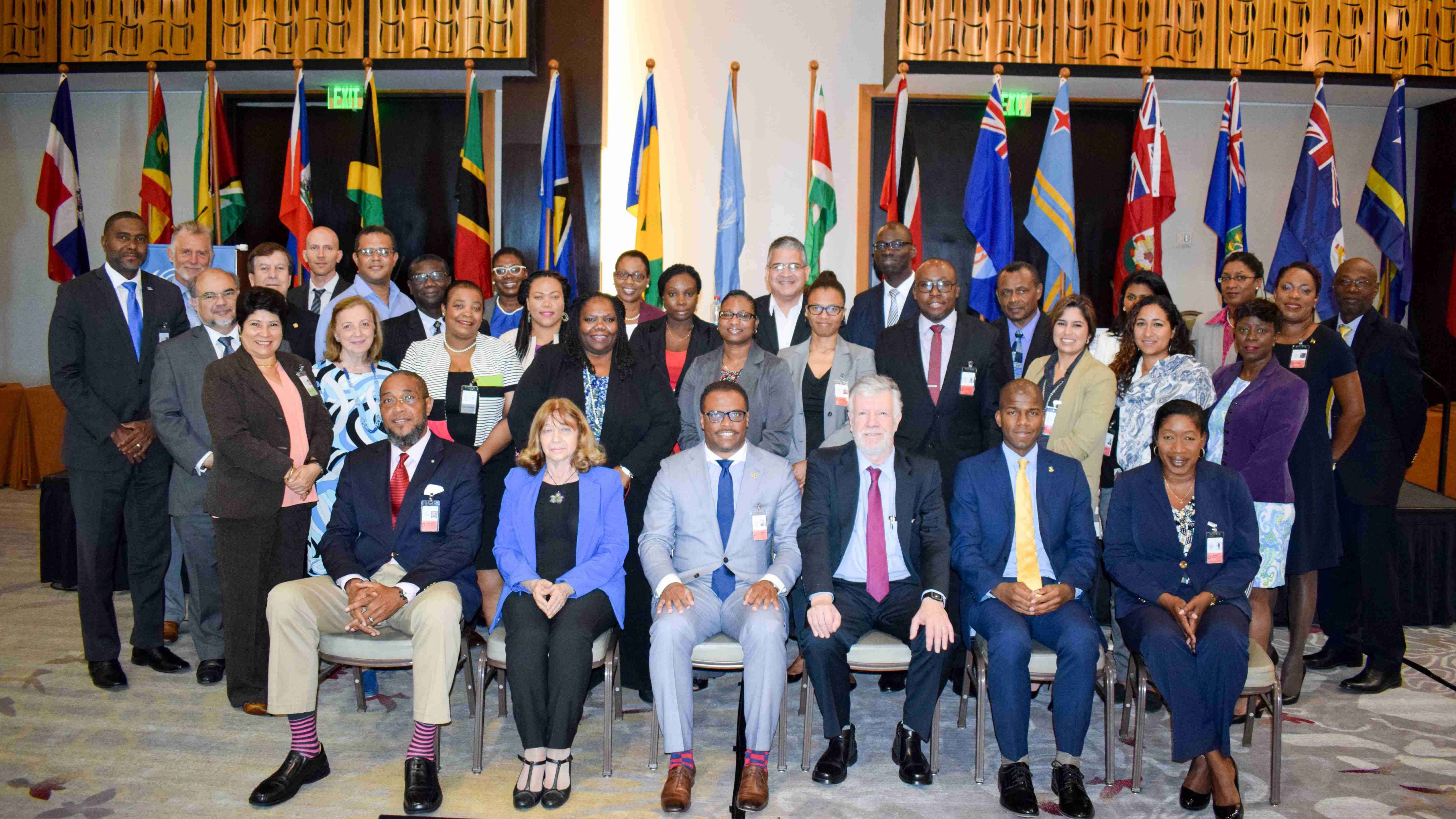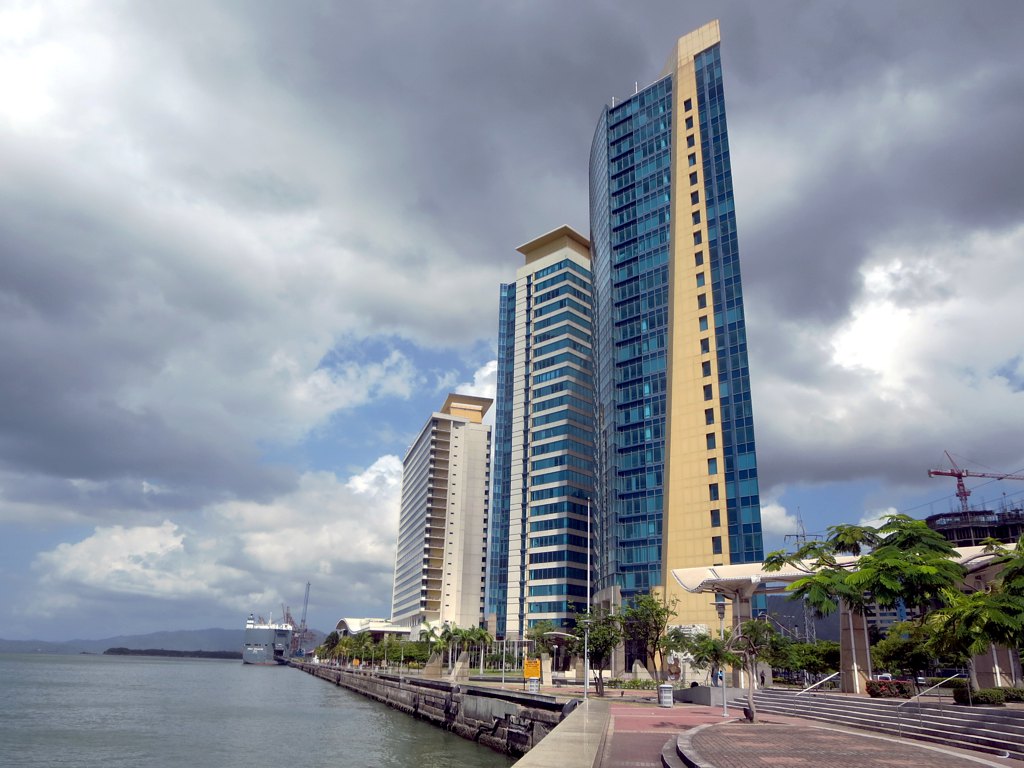18th Monitoring Committee of the CDCC
Work area(s)
Welcome Remarks by Antonio Prado, Deputy Executive Secretary of ECLAC.
Welcome Remarks
Deputy Executive Secretary Antonio Prado
18th Monitoring Committee of the CDCC
Port of Spain, 19 May 2017
His Excellency, Mark Brantley, Minister of Foreign Affairs and Aviation of Saint Kitts and Nevis and Chair of the CDCC,
Honourable Ministers and other Distinguished Representatives of CDCC Member Countries,
Representatives of regional and international organizations,
Members of the diplomatic corps,
Ladies and gentlemen,
It is a pleasure to be here with you once again in beautiful Port of Spain. I bring to you the warm greetings of our Executive Secretary Alicia Bárcena. I recall being here two years ago to participate in the ‘Forum on the Future of the Caribbean. It was also during 2015 that I attended the 17th Monitoring Committee of the CDCC and the Caribbean Symposium during which Member States engaged in reflection on MDG implementation, and prepared for the adoption of Agenda 2030 and the new Sustainable Development Goals by the United Nations General Assembly that year.
As we approach the second anniversary of the adoption of Agenda 2030, I am very pleased to see the Caribbean focused on accelerating SDG implementation in the subregion. This, I understand, was the focus of the workshop held here yesterday. The Caribbean was also very well represented at the ECLAC Forum of the Countries of Latin America and the Caribbean on Sustainable Development held recently in Mexico City. This is a very welcome reflection of the importance being placed by the subregion on pursuing the framework for holistic, integrated development offered by Agenda 2030 to chart a development course for your countries that will have profound impact on the welfare of all Caribbean citizens. We at ECLAC are honoured to be able to support this journey which you have begun.
I offer you four crucial issues that must be addressed if the Caribbean is to ensure meaningful implementation of a sustainable development agenda.
First, it is impossible to ignore the considerable debt burden that many member states face and the limited fiscal space which has resulted from this. This challenge makes it difficult for the region to marshal the resources necessary to move forward swiftly. In this context, the SDGs represent a timely opportunity to reassess priorities, and to advance careful planning while addressing the capacity constraints that limit the creative energies of your people. In this context, evidence-based policy making will be key to mainstreaming and implementing the SDGs in the Caribbean to achieve the most efficient outcomes.
Secondly, the Caribbean will need to explore every opportunity for collaboration and support from the international community, including through South/South and triangular cooperation. Key global agreements also adopted in 2015 hold real prospects for financial support. I am speaking of the Addis Ababa Action Agenda and the Paris Agreement of the COP 21. The question to be asked is: how strategic and deliberate has the Caribbean effort been in pursuing the opportunities for support presented by these agreements? ECLAC will continue to advocate on behalf of the region for a “debt for climate adaptation swap “initiative which will offer some debt reduction but more importantly help open development opportunities in green sectors. SDG implementation also offers an opportunity for you to develop the human capital base and to expand exports in non-traditional areas such as education services, health tourism and related areas for economic diversification.
Thirdly, the Caribbean’s classification as middle income countries despite your unique development challenges and vulnerabilities presents to your subregion a very real challenge in respect of concessionary resource mobilization. The reality is that member states will have to examine opportunities at the national level to raise financial and other resources. In this effort we must galvanise the domestic private sector and civil society, through incentives, to move capital from consumption activities to long term investment. This also means improving the business environment and creating the opportunities for productive investment. I look forward to your views on how you may proceed with SDG implementation when we discuss the report of the first Forum of Latin America and the Caribbean on Sustainable Development this afternoon.
Finally, the 2030 Agenda for Sustainable Development promises to leave no one behind and every country has a role to play in fulfilling this promise. However, without reliable and timely data on the SDG indicators, it will be impossible to monitor the progress in attaining the SDGs. Therefore, the national statistical systems have a crucial role to play. The reality is that, in the Caribbean, these systems are severely challenged where the timely production and dissemination of official statistics are concerned. Your commitment to monitor and measure implementation of the SDGs should provide the impetus for the modernization of national statistical systems in the Caribbean. In this effort ECLAC stands ready to offer every support through technical cooperation, including new methodologies to improve on the production and dissemination of data for development. I encourage you to make good use of this assistance.
Distinguished Representatives,
This meeting also provides an opportunity for marking milestones. We want to use this meeting of the Committee as an opportunity to bring to the attention of the Caribbean ECLAC’s approaching 70th anniversary, which will be celebrated in February next year. It will be for us a time to reflect on the contribution made by the Commission to Latin American and Caribbean development through the years. You will find within your folders an e-copy of “ECLAC Thinking”; a compendium of selected writings chronicling the Commission’s path of intellectual thought during its first fifty years. I look forward to sharing some of these perspectives with you this morning.
We have also invited a distinguished panel of scholars to highlight the contribution made by the eminent Caribbean economist Sir Arthur Lewis who helped shape modern economic thinking which is still relevant today. I am certain that their contributions will enrich our dialogue today.
It only remains for me to say ‘welcome’; I am happy that you could join us in Port of Spain this week. Let us make our deliberations today memorable and meaningful.
Thank You.
Related content

Caribbean policy makers recognize ECLAC’s 70-year contribution to regional development
ECLAC Caribbean convenes high-level meeting to discuss the subregion’s plans to aggressively pursue implementation of Agenda 2030 and the SDGs in this regard.

Evolving development thinking and practices in Latin America and the Caribbean: The role of ECLAC
Keynote Address by Antonio Prado, Deputy Executive Secretary of ECLAC, at the 18th CDCC Monitoring Committee.
Related event

Eighteenth meeting of the Monitoring Committee of the Caribbean Development and Cooperation Committee
CDCC member countries and associate members will convene in Port of Spain for the 18th meeting of the CDCC Monitoring Committee.
Subregional headquarter(s) and office(s)
Speech country
Speech city
Author
Contact
Public Information Unit
- prensa@cepal.org
- (56 2) 2210 2040
